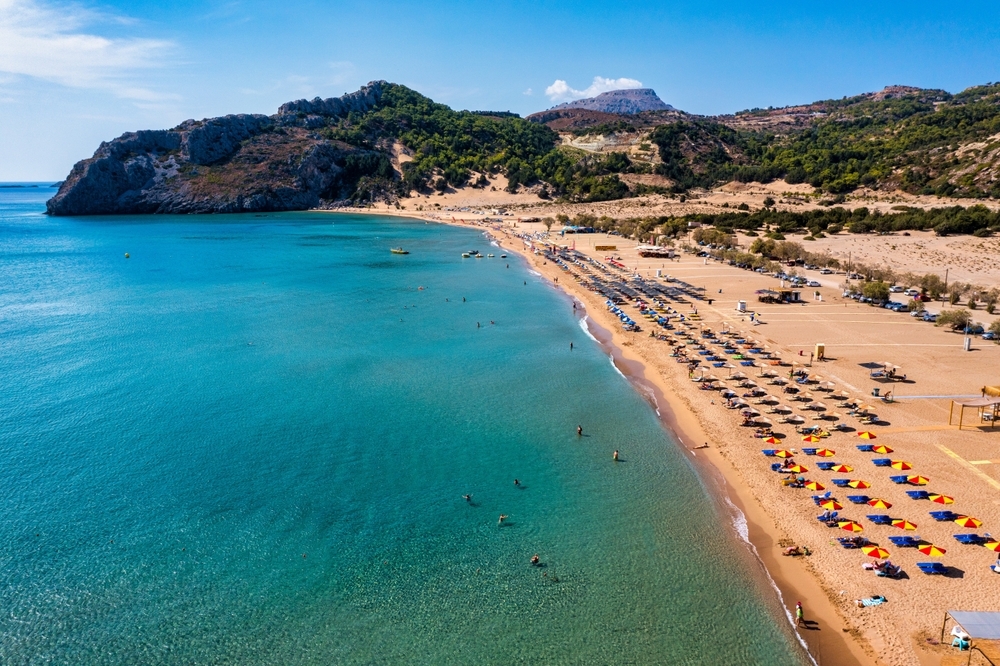The Greek island of Rhodes, a popular holiday hotspot for British and international tourists, was rocked by a 4.8-magnitude tremor last night.
The earthquake is the latest in a string of natural disasters and climate-related extreme weather events in Greece and the Mediterranean. This week, parts of Greece are scorching in a 43C heatwave – the earliest heatwave the country has ever seen – leading to tourist attractions including the Acropolis closing in Athens. Nearby Cyprus has seen a wildfire break out around the city of Paphos. Wildfires across Greece, including in Rhodes, led to evacuations last summer.
Understandably, those with trips booked to Rhodes might be wondering if it’s safe to travel to the island following the earthquake. Here’s what we know so far.
Is it safe to travel to Rhodes in Greece?
Yes. According to local media, the damage was minimal. Flights are still operating to and from the island, and there has been no official advice issued against travelling to Greece.
Where was impacted by the earthquake?
While tremors were felt in Rhodes, the earthquake’s epicenter was detected in the Aegean Sea, around 67km southwest of the island, according to the European-Mediterranean Seismological Centre (EMSC). Tremors were reportedly also felt in Türkiye.
What are your rights if you’ve booked a trip?
As the UK Foreign Office has not officially advised against travelling to Greece, it’s unlikely you’ll be able to cancel your trip without penalties. Your best bet is to check directly with your airline or travel provider.
What are the UK Foreign Office recommending?
Greece is still safe to travel to, according to the UK Foreign Office. Their safety and security page has the following advice on earthquakes.
Greece can experience earthquakes and earth tremors. You should:
- familiarise yourself with safety procedures in the event of an earthquake
- follow advice given by the local authorities
- call the Greek Emergency Services on 112 if you are in immediate danger
The Greek General Secretariat for Civil Protection website has advice about what to do before, during and after an earthquake, and reports on incidents.
Stay in the loop: sign up to our free Time Out Travel newsletter for all the latest travel news.










